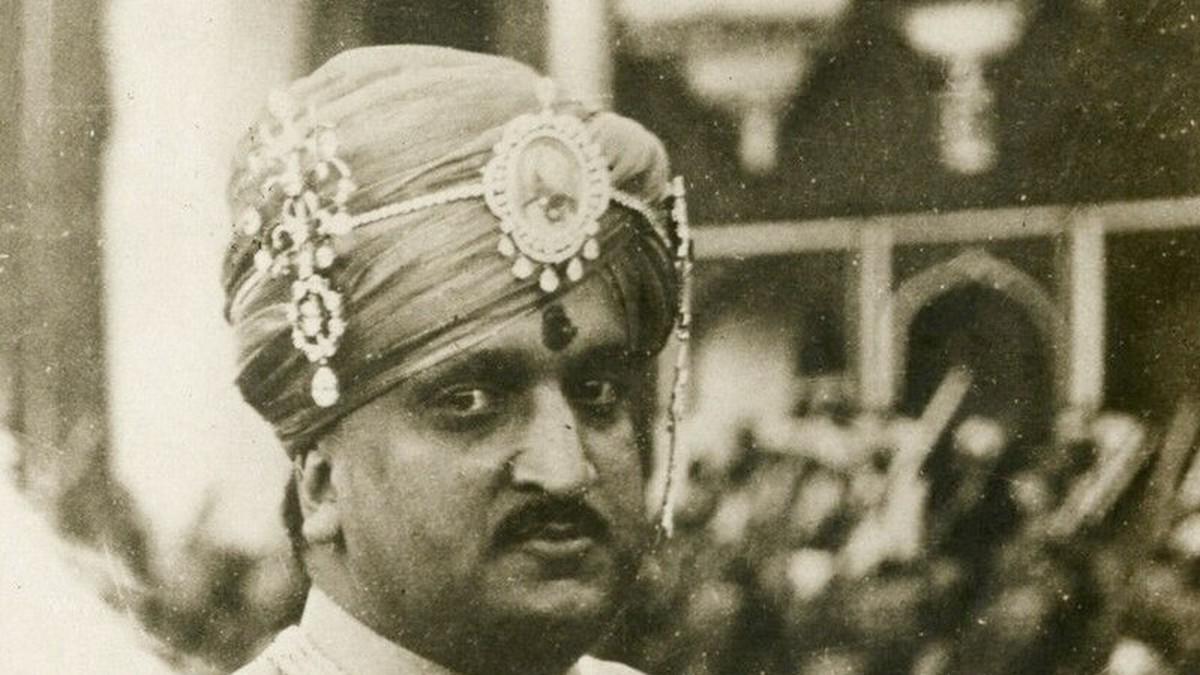Today, October 26, is a massive and momentous day in history.
On this day in 1947, the Maharaja of Jammu and Kashmir sent the Instrument of Accession to India. In 1979, Park Chung-hee, President of South Korea, was assassinated. And finally, in 2001, the Patriot Act came into effect in the United States.
If you are a history geek who loves to learn about important events from the past, Firstpost Explainers’ ongoing series, History Today will be your one-stop destination to explore key events.
Maharaja of J&K sends Instrument of Accession to India
On October 26, 1947, Maharaja Hari Singh of Jammu and Kashmir sent the Instrument of Accession to the Union of India.
It had been 73 days since the British left the subcontinent on August 14, 1947. Meanwhile, the Princely States had been left to choose between joining India and Pakistan.
Hari Singh had thus far played coy, wanting Jammu and Kashmir to be independent. However, circumstances forced his hand after Game of Thrones Operation Gulmarg on the intervening night of October 21 and 22, 1947.
The operation, planned by Sardar Shaukat Hayat Khan, a close aide of Pakistan’s founder Muhammad Ali Jinnah, and led by Major General Akbar Khan of the Pakistani Army, saw thousands of tribesmen pour into Jammu and Kashmir.
The invaders proceeded to go on a rampage over the next few days, leaving between 30,000 and 40,000 people dead, according to reports. A panicked Hari Singh wrote to then Governor General of India, Lord Mountbatten, requesting immediate assistance for the grave emergency that had arisen. He also attached the Instrument of Accession.
“With the conditions obtaining at present in my State and the great emergency of the situation as it exists, I have no option but to ask for help from the Indian Dominion. Naturally they cannot send the help asked for by me without my State acceding to the Dominion of India. I have accordingly decided to do so and I attach the Instrument of Accession for acceptance by your Government,” Hari Singh wrote.
Impact Shorts
More ShortsIndian troops were immediately airlifted to Srinagar and the first war over Kashmir between India and Pakistan commenced. It would not be the last.
South Korean President assassinated
On October 26, 1979, then South Korean President Park Chung-hee was assassinated. Park, who had served in the Korean War and been a general in the army, had ruled South Korea since leading the 1961 military coup.
The assassin? Kim Jaegyu, a close friend of Park who came from the same town and was at the military academy with him. Kim was also the chief of the much-dreaded Korean Central Intelligence Agency (KCIA), which ruthlessly enforced Park’s rule by jailing and torturing students and opposition leaders, sometimes on false charges.
While South Korea had made economic strides in almost two decades under Park, there was growing unrest within the nation about his autocratic reign, including protests and riots. For many, the expulsion of Kim Young-sam, a popular Opposition leader, from the National Assembly on October 9, 1979, proved the last straw.
Just over two weeks later, Park was having dinner with Kim in his ‘safe house’ alongside a famous female singer and a model. What precisely transpired during the meeting remains a mystery.
However, it is widely believed that Park took Kim to task for not clamping down on the protests against his regime hard enough. Kim responded by shooting Park and his bodyguard dead.
In the aftermath of Park’s death, Prime Minister Choi Kyu-hah took over as acting president. Meanwhile, Major General Chun Doo-hwan, a regime loyalist, took over the investigation into Park’s death. A few months later, Chun took over South Korea and declared martial law.
Kim later claimed he thought he had no choice but to stop Park. He said he was going to use the army, impose martial law and eventually allow South Korea to become a democracy. He was executed on May 24, 1980. It took South Korea another seven years to truly become a democracy. Today, the legacies of both Park and Kim remain highly debated in South Korea.
Patriot Act takes effect
On October 26, 2001, the Patriot Act came into effect in the United States of America.
The original legislation, which had been passed by the US Congress just weeks after 9/11 with little debate, was quickly signed into law by George W. Bush.
The Bush administration had seemingly made good use of the old ‘let no crisis go to waste’ – attributed at times in turn to Winston Churchill, Niccolò Machiavelli and Saul Alinsky.
The law vastly changed the way America surveilled its own citizens and reduced the amount of civilian oversight on its domestic spy agencies. It also allowed the US government to hold those it deemed a threat to national security without bail and others indefinitely – without regard to their constitutional rights.
Its proponents claimed it was vital to winning the war on terror and protecting the American people. However, its opponents, which were few and far between at the time, warned of government overreach and the threat to privacy and individual liberty.
It took more than another decade and the revelations of Edward Snowden in 2013 for many to finally comprehend just how vast the scope of the surveillance programme was.
The Patriot Act was eventually replaced in 2015 when then President Barack Obama signed the Uniting and Strengthening America by Fulfilling Rights and Ensuring Effective Discipline Over Monitoring (USA FREEDOM) Act into law.
With inputs from agencies
)